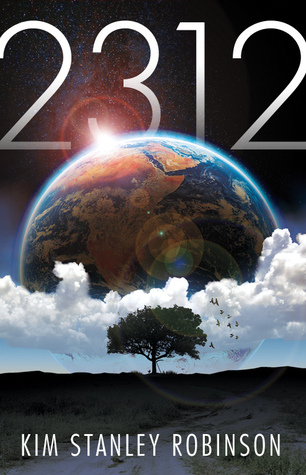The year is 2312, and humans have spread throughout the solar system on moons, planets, and in between, creating their own livable habitats with massive technological advances. In Terminator, the only city on Mercury, Swan Er Hong’s life changes when her grandmother dies unexpectedly and she carries out a few last requests, propelling Swan into a complicated world of interplanetary politics, space travel, and quantum computers.
2312 is a very ambitious scifi novel that could almost be called a post-modern art piece. The plot chapters are interspersed with extracts and lists, which are themselves short chapters of science and world-building structured as info-dumps and stream of consciousness thoughts from an unknown source. There are a lot of good ideas here about politics, sexual identity, and the role that technology plays in society. I like that the future has its own societal issues, but on the whole is a brighter, more optimistic future for the human race.
Although I admire this novel in theory, it just doesn’t work for me. It’s too much of an art piece and not enough story. The plot seems rather incidental to the weighty technological developments, and although the worlds and structure feel deliberate, the characters and plot are tentative at best. I am unable to relate to the protagonist, who, at 140-ish years old, is a flighty irrational rich kid who creates landscape art and feels a kinship with wolves.
Though it’s not mine, this could be your new favorite book. If you like detailed scifi world building, intellectually satisfying but dry prose, have a secret affinity for capricious emotional women, and like a challenging read, then this may be for you.
all the invisible events make the history of that time hard to write. And all the events continued to occur against the most intense resistance of time, material, and human recalcitrance—human fear, in fact, seizing with a desperate grip various imagined props out of the past that were somehow felt to hold the world together. Because of this, there is still and always the risk of utter failure and mad gibbering extinction. There is no alternative to continuing to struggle
